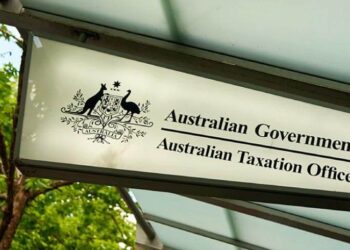In a recent update, SuperConcepts senior SMSF technical specialist Anthony Cullen said there are often different considerations about how to plan for incapacity and whether an adult child who had been granted an Enduring Power of Attorney was able to sign fund documents on behalf of a parent.
He noted one of the basic premises of an SMSF, as defined in the superannuation law, is that all members must be trustees or directors of the corporate trustee and vice versa. However, there are also provisions within the Act that allow certain other people, such as a member’s Legal Personal Representative, to act as a trustee in the member’s stead.
“A Legal Personal Representative could be the executor of an estate or somebody who has been granted an Enduring Power of Attorney. In accordance with the superannuation law, a general Power of Attorney will not suffice, it must be an Enduring Power of Attorney to satisfy the definition of an SMSF,” he said.
“The donor of an Enduring Power of Attorney is generally an individual and the donee, subject to the limitations of the Power of Attorney, may act on the individual’s behalf. To that end, if we need information or action to be taken by the member, the Power of Attorney may suffice.
“However, the granting of a Power of Attorney does not extend to the role of trustee of a trust, of which a self-managed super fund is. The only person who can act on behalf of the super fund as a trustee is a trustee themselves. These powers cannot be delegated, even where an Enduring Power of Attorney has been granted to another person. “
Another common scenario that SMSFs can come across is when completing financial accounts for a fund and sending them out for review and signing, according to Mr Cullen. They would be returned signed by somebody other than the trustee (generally a child) with the words ‘as Power of Attorney’ written under the name/signature.
“When we query the signing of the documents the common response was that mum and dad are overseas on holidays and I’ve signed on their behalf, under a Power of Attorney,’ he said.
“Most modern deeds and company constitutions (for corporate trustees) will have a clause that states if a trustee or director lacks the capacity to act in that role they shall be removed from the role.
“The ATO, as regulators of SMSFs, have made it clear in SMSF Ruling 2010/2 that to continue to satisfy the definition of a self-managed super fund, the relevant trustee must resign or be removed and formally replaced by the Enduring Power of Attorney.”
“The Enduring Power of Attorney, if not already a trustee, will need to consent to act as a trustee. The ATO trustee declaration, and any other necessary documentation, will also need to be attended to. After which, they will be acting in their capacity as a trustee of the fund, rather than the Enduring Power of Attorney and must act as a prudent trustee.“
“This will be the case for all circumstances including ‘parents on an overseas holiday and unavailable’ and not just when dealing with loss of capacity.”
Impacts from changing circumstances
When considering another person acting as the legal representative, Mr Cullen noted that one interesting question is if a person is the enduring power of attorney for their parent, are they able to sign documents on their behalf in their capacity as an individual member and a trustee of the fund.
“This went against all my understanding of such circumstances until this point and so I investigated it further,” he said.
“In my research, I found that there may be limited situations where a trustee could delegate their powers to an enduring power of attorney in Queensland and Western Australia.
“However, as these laws are found in state-based trust law and are very limited, I cannot see that they would extend to, or override, the requirements of the Commonwealth superannuation law in terms of trustee structures and delegating such powers.”
This also raises the questions around what happens when an enduring power of attorney is acting as a trustee and the donor passes away.
“Most people will understand that the powers granted via an enduring power of attorney cease upon the death of the donor. While this may be the case, as mentioned above, once the enduring power of attorney takes on the role of a trustee, they are acting as a trustee and not the enduring power of attorney,” Mr Cullen continued.
“That is to say that, even though the donor may have passed away, assuming the appointment of the enduring power of attorney to the trusteeship is valid, they will continue to be a trustee until they are removed in accordance with the fund’s trust deed.”
Mr Cullen said it would be prudent to check the fund’s deed to determine what action, if any, may need to be taken at this point in time.
“It is also worth noting that unless the enduring power of attorney is also the executor of the deceased estate the fund may not be satisfying the definition of a self-managed super fund. Superannuation laws allow for any such breaches to be rectified within six months of the breach,” he said.
“This should give enough time to remove a trustee who held the enduring power of attorney and appoint the executor of the estate, should this be required.
“If you don’t have an enduring power of attorney in place, it may be worth discussing with your lawyer as part of your overall succession and estate plan. Dealing with the loss of capacity of a member/trustee is easier when the appropriate paperwork is in place beforehand.


